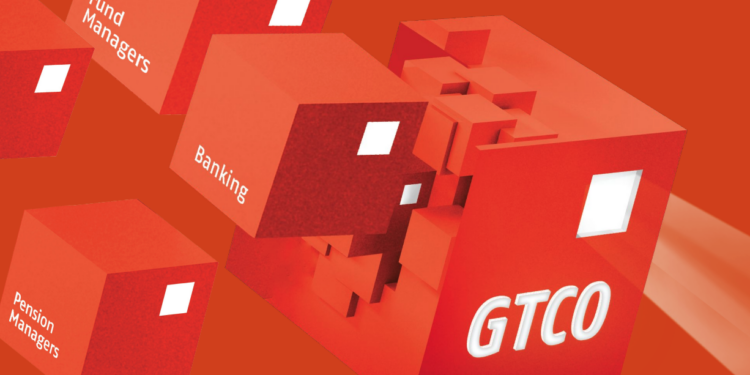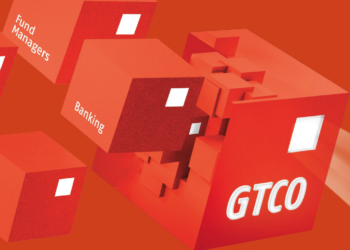GTCO has just announced a $100 million Accelerated Bookbuild (ABB), a capital raise being managed by Citibank, and what appears to be a significant move in the evolution of the bank’s listing journey.
While it may appear unusual at first glance for what seems like a new listing on the London Stock Exchange (LSE) to be executed via an ABB, the reality is more nuanced.
This is not GTCO’s first rodeo in London. The group has, since 2007, maintained a Global Depositary Receipt (GDR) listing on the LSE. One GDR was equivalent to 50 ordinary shares of GTBank.
However, this latest move signals a shift, the winding down of the GDR programme and a transition to a direct listing of ordinary shares on the LSE, much like Seplat and Airtel Africa.
What is a GDR?
A Global Depositary Receipt is a bank-issued certificate representing shares in a foreign company. It allows investors to trade the shares on international stock exchanges (like the LSE) without dealing with the complexities of cross-border settlement.
In GTCO’s case, 1 GDR = 50 GTBank shares, providing global investors with exposure to Nigerian banking equity.
What is an Accelerated Bookbuild?
An ABB is a fast-track capital raising process, often executed within 24–48 hours, where shares are offered to institutional investors at a discount to the current market price. The process is typically used when the issuer wants to minimise market impact, raise funds quickly, or take advantage of strong investor appetite.
The GTCO deal fits this pattern. All indications suggest that this is a pre-placed transaction, with anchor investors already lined up, making this, in essence, a done deal.
There may even be a greenshoe option embedded, a common feature in such placements, allowing the issuer to upsize the raise (possibly to $115 million) if demand is strong enough.
What is Fungibility?
With the GDR structure, investors held synthetic exposure to GTCO stock. But with this listing shift, the stock becomes fungible — that is, freely interchangeable between the NGX and the LSE, assuming cross-border settlement infrastructure allows. This mirrors the dual-listed structure of Seplat and Airtel Africa, where the same shares can trade across both markets, potentially improving liquidity and price discovery.
This deal is another indication of Segun Agbaje’s strategic brilliance. At a time when the rest of the FUGAZ banks are grappling with forbearance-backed loan books, GTCO has stood out as the only bank with zero forbearance loans. That’s not just good optics. It’s a loud declaration of strong credit risk discipline and corporate governance integrity.
While other banks were sending out awkwardly worded disclosures on their exposure to CBN’s forbearance regime (with the exception of FCMB), GTCO was keeping its powder dry, preparing to strike with a move that demonstrates both confidence and prudence.
There has been some grumbling from domestic quarters suggesting that GTCO is turning its back on local investors. But that argument simply doesn’t hold water. GTCO previously offered a deal on the NGX, which saw underwhelming subscription levels. If the appetite wasn’t local, then the capital had to be found elsewhere. According to the last GTCO, Segun reiterated that the offer on the Nigerian leg met its objectives.
What this LSE listing offers is:
- Better price discovery – GTbank trades at 0.9x P/B.. we strongly believe it deserves to trades above book. Stanbic IBTC is trading at 1.4x P/B
- Access to deeper pools of institutional capital
- And perhaps most importantly, a re-rating catalyst. GTCO should really be trading somewhere around >120 on the back of its forbearance announcement.
GTCO is currently trading at a discount to book on the NGX, a position that many would argue is undeserved for a bank with its balance sheet strength and governance pedigree. The LSE listing is a clear signal: GTCO believes it should trade above book, and it is now entering a market where international investors are more likely to reward its fundamentals.
From a capital-raising perspective, the timing couldn’t be better. A year ago, GTCO traded around N30 levels . Today, it trades at ₦80. By staggering the raise, GTCO has managed dilution with textbook precision, raising new capital at much better valuations and ensuring minimal erosion of existing shareholder value.
The key questions now:
- At what price will the book be closed? ABBs are typically priced at a modest discount to the prevailing market price (often 3–10%), and the final pricing will reveal investor appetite
- How tight is the discount to market?
- And crucially, how many times was the book covered?
I was going to argue that GTCO should do another round of ABB to allow for liquidity on the London leg, but the honest truth is that it doesn’t need all that excess capital.
In sum, this is a bold, calculated, and shrewdly executed move. One that shows why GTCO continues to outclass its peers, not just in strategy and governance, but in the art of capital markets execution.
#ViewsOfARetiredSalesMan


























